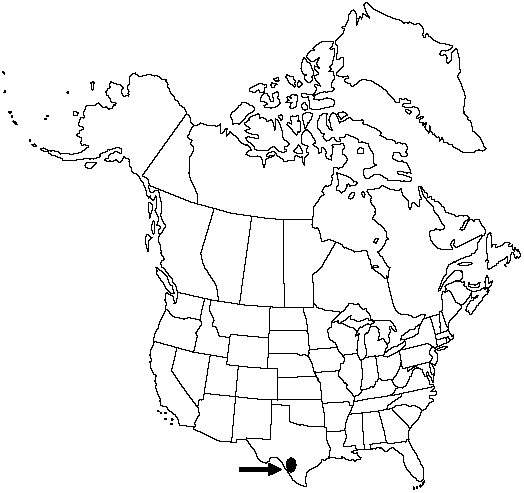Stems short-creeping to nearly erect; scales dark reddish brown, concolored, margins entire or minutely denticulate. Leaves arching or pendent, densely clustered, 20–62 cm. Petiole 0.8–1 mm diam., glabrous, occasionally glaucous. Blade ovate, pinnate, 15–38 × 8–26 cm, gradually reduced distally, hirsute; proximal pinnae 3–4-pinnate; rachis straight or becoming flexuous, glabrous, not glaucous. Segment stalks 1–4 mm, dark color ending ± abruptly at segment base. Ultimate segments transversely oblong, nearly round, or fan-shaped, about as long as broad; base truncate or cuneate; margins of fertile segments crenulate or entire, sterile segments with margins serrulate; apex rounded. Indusia transversely oblong or crescent-shaped, 0.5–4 mm, covered with whitish needlelike trichomes. Spores mostly 35–53 µm diam.
Phenology: Sporulating late winter–early spring.
Habitat: Moist, shaded, limestone cliffs along streams and rivers, on boulders in creeks, and among rocks on steep slopes
Elevation: 200–500 m
Distribution

Tex., Mexico, Central America in Guatemala, Belize.
Discussion
Adiantum tricholepis occurs in the flora only in Bandera and Medina counties on the Edwards Plateau in central Texas. Collections identified as A. tricholepis from the mouth of the Pecos River are Adiantum capillus-veneris.
Selected References
None.